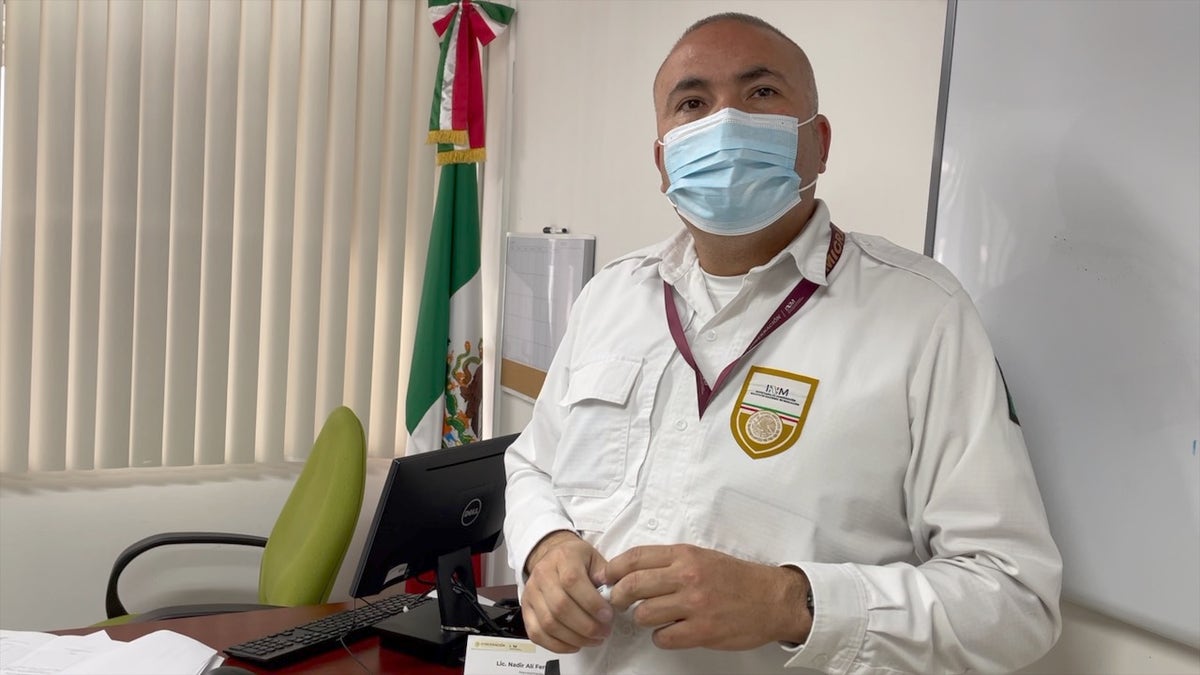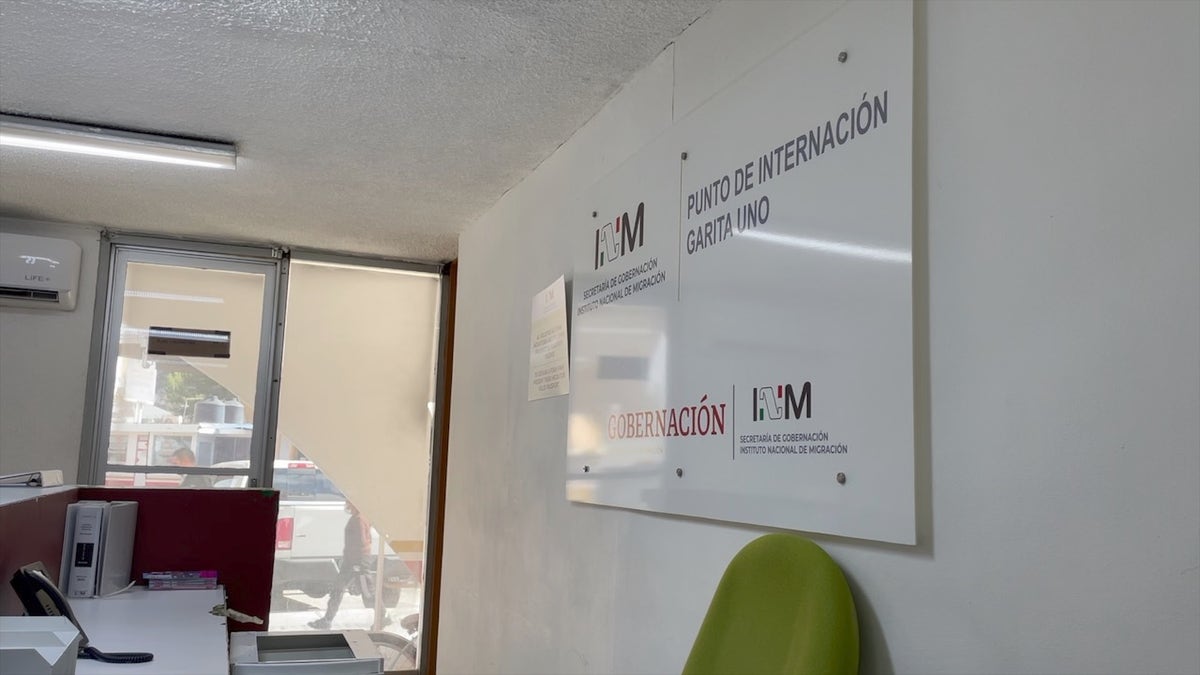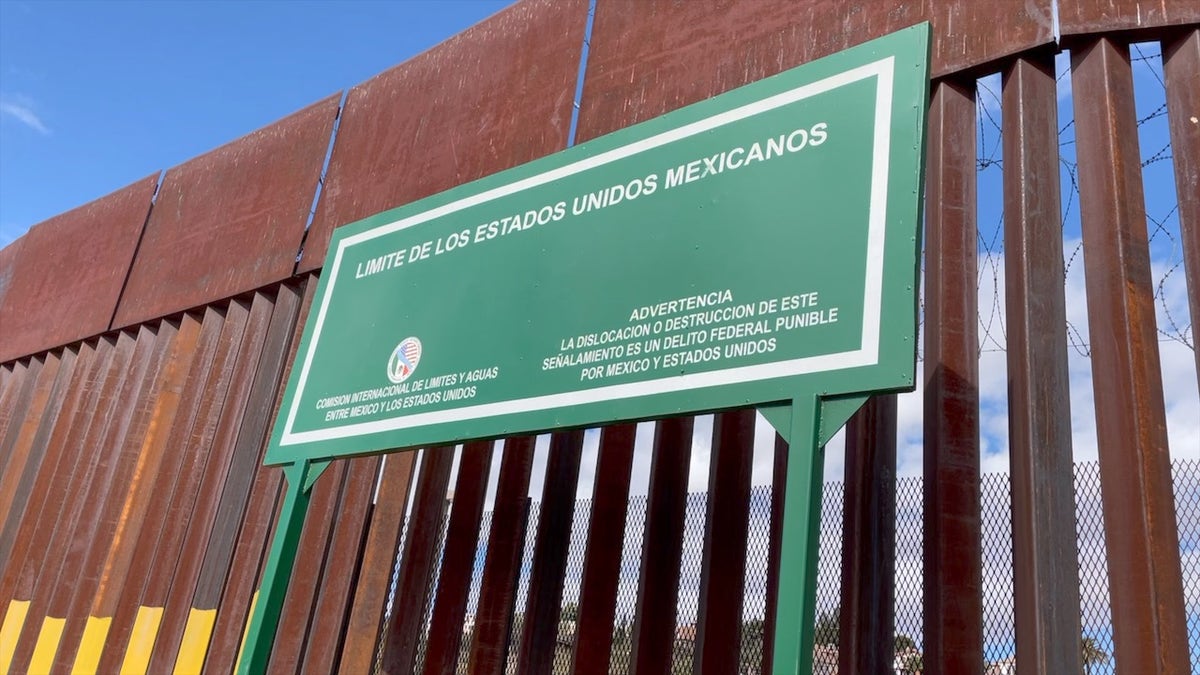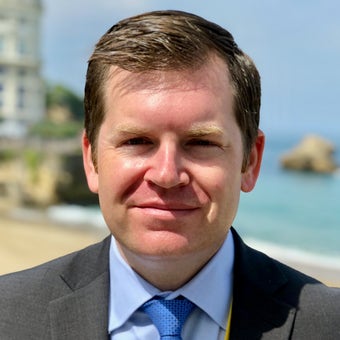NOGALES, Mexico – Mexican immigration agents are overwhelmed and undermanned by design, a Mexican migration official told Fox News in an exclusive interview.
"I just adapt to my president's decisions," said Nadir Ali Fernandez Villasana, the local representative of the National Migration Institute office in Nogales, Mexico. "But since this new administration took over, the new president in Mexico, it's austerity … austerity in the republic."

Nadir Ali Fernandez Villasana, local representative of the National Migration Institute (INM) office in Nogales, Mexico. (Matt Leach/Fox News)
President Andrés Manuel López Obrador started an austerity policy when he took office in 2018, aiming to combat corruption by reducing government size and government abuses of expenditures. He planned to use the recouped money for future development in the country.
Fernandez Villasana said the policy had a direct impact on resources at Mexico’s northern border.
RISING CRIME IN DANGEROUS MEXICO BORDER TOWN LEAVES RESIDENTS FEELING ‘INSECURE’
The Sonora border district spans 389 miles and has six major ports of entry, including Nogales.
Fernandez Villasana’s office, which is responsible for implementing migration policy across four sentry posts in the Nogales area plus 12 additional municipalities, had 40 agents to process people in the district. But under orders from the Obrador administration, that has been reduced to 15.

An unattended desk in the Nogales, Mexico, migration office.
"There’s a pretty big difference between the United States and Mexico," Fernandez Villasana said.
"In Mexico, we don’t really consider migration to be illegal," he continued. "In the United States, people who have illegal migratory status are more chased than in Mexico. In Mexico, we try to make the migration orderly, safe. We don’t see it as a crime, like a crime of migration."
WATCH HERE:
Fernandez Villasana told Fox News that Mexican citizens deported from the U.S. get food and travel vouchers and are released to find their way home. Immigrants from other countries, like Guatemala and El Salvador, are shipped to a facility farther south to complete the deportation process if they don't have proper paperwork.
Because of the reduced workforce due to the austerity policy, Fernandez Villasana said he doesn't always have the staff "to take some illegals to the migratory station who are illegally in the country, and if I don't have a provisional holding place to keep these people, I have to let them go. That's a consequence."

The U.S./Mexico border wall in Nogales, Mexico.
Fernandez Villasana described an overwhelming workload for his 15 agents: eight-hour shifts doing administrative work at the ports of entry, then working overtime to cover highway check points.
But Fernandez Villasana told Fox News he thinks the austerity policy is working despite the difficulties his office faces.
"I feel like [Obrador] had to do this to have people who will be working better in his government," Fernandez Villasana said. "With the austerity of the republic, it decreased, but after that, things will be rearranged, and agents will be hired who will really be used."
Fernandez Villasana said illegal immigration is an issue for Nogales.
"I don’t know how many people are trying to cross or coming to Nogales," he told Fox News. "But yes, it’s a problem for the city."
"It’s a problem because we don’t know about all the people who come over, which of them are criminals," he continued.
CLICK HERE TO GET THE FOX NEWS APP
Fernandez Villasana said the problems aren’t always visible because illegal migrants don’t walk around freely. They hide from authorities because they don’t want to be deported.
He said there are many stash houses where they hide. Fernandez Villasana said they don't go after the stash houses because "we belong to national security, but we don’t carry firearms."
He said if they wanted to do an operation like checking a stash house, they would have to coordinate with the military or the police because it is very dangerous. Many of the stash houses belong to the cartels.















































